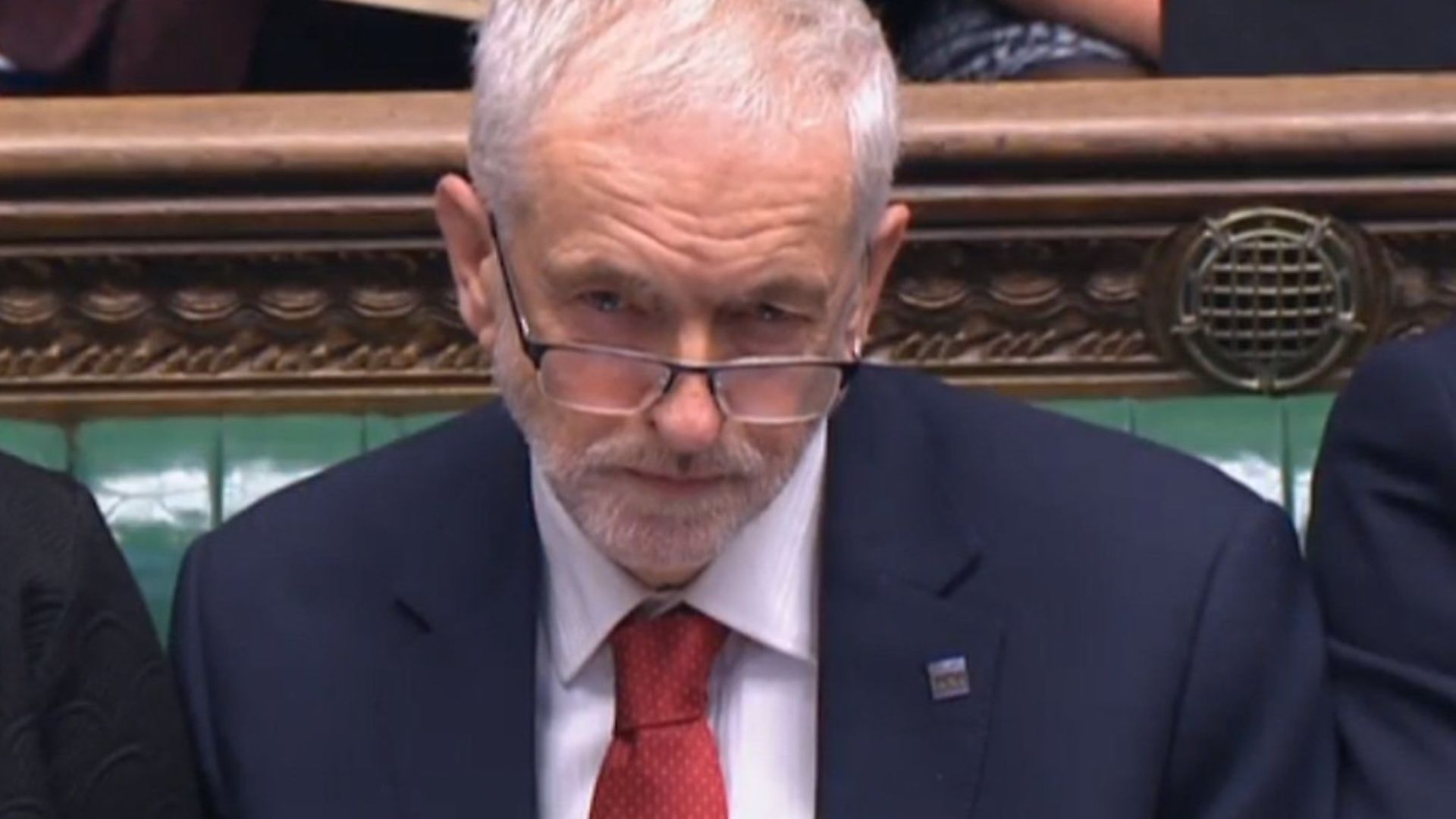
He keeps repeating that his party can’t halt Brexit. But, as JANE MERRICK explains, the Labour leader is wrong
We always knew this moment would come.
The closing stages of the Brexit negotiations, a prime minister compromising with Brussels, and the ensuing fight by the Eurosceptic right wing of her party over the outcome.
What is less clear is how this will end. It is not an understatement to say that the next few days will shape the future of this country. Everyone in a position of power in British politics has their role – and their responsibility – to make sure they do the right thing. And they must be held accountable for how they act in this period of flux.
For Theresa May’s part, she is acting in what she says is the national interest. But what about the leader of the official opposition? Jeremy Corbyn says he cannot stop Brexit. But he has more power than he thinks.
The Labour leader, so often fumbling at the parish pump at midday on Wednesdays, rose to the occasion at prime minister’s questions last week. He grilled May on the detail of the withdrawal agreement, and said Labour MPs could not support it in a Commons vote because it didn’t meet the party’s six tests.
The questions were persistent, even forensic. After more than two years of studied equivocation over Brexit, for fear of upsetting too many working class Leave voters, Corbyn was at last doing the job of opposing. Yet this moment did not last.
During two days of turmoil in Westminster for the prime minister, when ministers resigned one by one and it looked like the threshold of 48 no confidence letters might be reached, Corbyn left the stage. He could have used that window of greatest danger for May to show what an alternative Labour government would do, or simply showed how a Labour opposition would stop Brexit.
But, like so many occasions during his leadership, he retreated from the political frontline. When he did return, on Sky News’s Ridge on Sunday programme, he stuck to his line, made to Der Spiegel earlier this month, that Labour cannot stop Brexit. The parliamentary votes just don’t stack up, and overturning the withdrawal agreement is not something Labour can do on its own. What’s more, the Labour leader brushed away suggestions that the current stalemate makes a People’s Vote more likely by saying such a referendum is an ‘option for the future’, not for now. Yet in pre-Brexit terms, there are fewer than 130 days left of that future, which isn’t very long at all.
It is hardly breaking news that Corbyn is equivocal on Brexit, and his long-held Eurosceptic views are well-known. But this policy of treading a fine line for the sake of holding Labour’s vote together is, in these final stages of the Brexit negotiation process, a dereliction of duty. When the future of the country is at stake, British politics requires its most prominent politicians to be active players, not passive bystanders.
At the CBI this week, the Labour leader described the prospect of a no deal as an ‘appalling vista’ – which is right – but the chances of this no-deal scenario are not lessened by his deliberately reticent approach to Brexit as a whole. Just think what would happen if Corbyn swung the whole Labour party behind a People’s Vote. Not only that, Labour can – as shadow Brexit secretary Sir Keir Starmer says – stop Brexit by voting with others in the Commons.
When John Major was on the ropes over the Eurosceptic right in his party in 1995, the then leader of the opposition Tony Blair memorably skewered the prime minister by telling him ‘I lead my party, he follows his’. It was a brutal line – later described by Major as the most effective ever used against him – but even then, Blair had the luxury of two more years of Major’s government struggling in the polls and a Conservative Party at odds with itself over Europe before taking power.
Today, Corbyn is an opposition leader with just days to help change the outcome of Brexit. He should get off the sidelines and play his part. At the moment, he is being shamefully modest about Labour’s ability to help avert a national disaster.
Warning: Illegal string offset 'link_id' in /mnt/storage/stage/www/wp-includes/bookmark.php on line 357
Notice: Trying to get property 'link_id' of non-object in /mnt/storage/stage/www/wp-includes/bookmark.php on line 37






